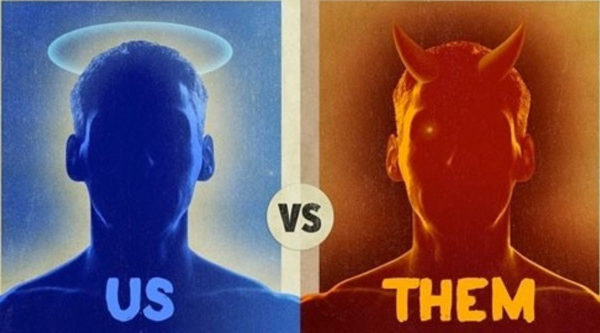Shame and Anxiety: Redux
I stated in the previous post that anxiety is not an emotion, but that in fact emotions are often embedded within the experience of anxiety. In my experience, one of the biggest culprets is shame. As I had long a go stated, shame can be likened to a ninja or perhaps , better yet, a vampire since shame is extremely stealthy, can transfigure itself into other emotional experiences, all in the attempt to evade direct attention. Unlike anxiety, which has a very notable and distinct physiological profile which makes its presence unmistakeable, shame is indistinct and amorphous..lacking a clearly recognizeable form.
As a clinician, I am continually discovering the tremendous role that the experience of shame plays is compelling many aspects of maladaptive behavior and personal suffering. Thus, I will be revisiting up the construct of shame from time to time. For those unfamiliar with our previous discussions on shame, specifically what we refer to as toxic shame, can be defined as the overriding experience that one is essentially “flawed”, “bad”, “incomplete”, and generally “not enough”. One may feel that they are not thin enough, attractive enough, smart enough, rich enough, muscular enough and so on. Nothing can slake this insatiable thirst to be better or more than whom they are . One who posesses a shame based core identity often feels that that in a number of ways they are essentially deficient. Thus they compare themselves to others, frequently find fault in themselves, and feel generally insecure; espeially in regard to how they are viewed by others. Perhaps the concept of low self-esteem should be more accurately understood as a shame based identity.
Shame based individuals will tend to experience significant discomfort and anxiety, especially in social contexts and situations. It only stands to reason, that if one feels inherently flawed and lacking, social settings will maximally provoke feelings of personal inadequacy, contributing to a generalized perception of threat when entering social settings. Like anxiety, shame is a drive state, and thus can compel one to engage in many maladaptive behaviors in the hope of reducing (avoiding) the experience of shame. Thus, for example, shame based individuals often tend to be highly socially avoidant, and resist engaging in social interactions or even personal relationships. They will find it difficult to trust others sufficiently to be truly open and intimate at the deepest levels, since their fears of abandonment and rejection will contaminate this capability. This can even impact sexual performance. So for example, a particular fellow I am treating, whom is very shame based due to his early history, is attempting to “prove” his masculinity to women, and of course by doing so, his focus is on his own performance which undermines erectile capability. This then only reinforces his perception that he is flawed, perpetuating a very vicious cycle.
Shame based individuals are constantly in need of proving their worth and legitimacy to themselves and others. Essentially, it can be seen as the little girl or boy trapped inside one, asking the world to please love them. But as they see it, to be loved, they have to prove their worthiness for love and acceptance. And so everything in life can become a test. Thus, they are likely to feel performance anxieties at the workplace, during academic pursuits, or any other situation where they perceive the possibility of evaluaton or judgement.
Shame based individuals often lead their lives in a state of flight from the experience of shame. This can take many forms. often drug and alcohol abuse can result. They also have a difficult time being still and inactive. Relaxation and unstructured time can provoke anxiety since they may feel that they have to be consistently busy and productive to legitimize their existence.
Contemporary research is beginning to bear out this observation since at long last, behavioral science is starting to recognize the existence and influence of shame. It can now be seen for example, that a significant subset of those suffering from social anxiety disorder, actually are plagued by high levels of shame.
Identifying shame as a core underpinning to the experience of anxiety has tremendous implications for treatment. The key to working with shame is never to try to control it or get rid of it. That would only reinforce shame since it would be tantamount to telling yourself that you shouldn’t be feeling what you are feeling or be whom you are. So, what is one to do? Fortunately the tools of mindfulness and/or emotional exposure are proving very helpful in this regard. Stay tuned to future posts.
As always, you are invited to post comments, personal experiences, questions or alternative views!






